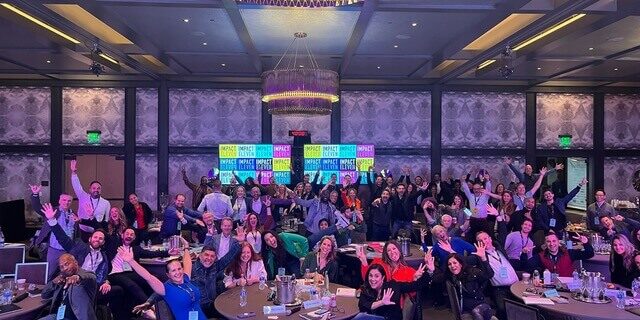
Welcome to leadership. You’re now a manager, with direct reports. Congratulations!
I moved into my first formal leadership role in my late 20s. I was a top sales performer, and I saw my promotion to sales management as the natural next step in my career. I was energized, armed with big ideas, and ready to change everything — immediately!
You already know what’s coming next.
The abrupt change shocked people and was met with a lot of resistance. I was confused by the conflict I felt with my team. Why wasn’t everyone ready to commit with the same intensity to the work required to hit our big, bold, record-breaking sales goals?
My experience isn’t unique. A lot of new managers make the same mistakes. You can do better. Here’s how:
8 Ways to Avoid Rookie Management Mistakes
- Don’t try to implement major change on your first day. You’re probably full of big ideas, but it’s important to take a step back, observe, and understand. Conduct as much discovery and due diligence as possible (even prior to day one). Spend time getting up to speed on everything you need to know about your employees and their day-to-day work. Sit in on meetings. Conduct one-on-one’s. Talk to customers. Ask great questions. Learn.
- Get off on the right foot with your direct reports. You don’t get a second chance. People want a confident, capable leader, but they also want to work for someone who’s accessible and open. Spend the time required to demonstrate you are interested in helping people be successful. Talk about what people can expect from you first.
- To develop strong relationships, be authentic. When you’re getting to know people, be yourself. This sounds easy, but new managers often fall into the trap of acting like a manager. People see through the act. Be genuine and people will respect and begin to respond to you.
- Learn what motivates your employees. Find out what matters to people. Understand how other people define success. I believe that everyone wants to contribute and succeed. It’s up to managers to understand the barriers and start breaking them down.
- Listen. Ask employees for their perspective and input. If your decisions involve people, then involve them. What do they think needs to change? What’s going well, and what’s not working? It’s amazing what you can learn when you stop talking and start listening.
- Acknowledge what’s working. Start with the positive, and give praise and recognition where it’s due. No one wants a new manager who has a laundry list of things to improve without any appreciation for what is working well and who is making good things happen.
- Focus on collaborative change. Change is hard. Invite participation in building the game plan and you’ll get more buy-in when it’s time to implement new initiatives.
- Walk the walk. People will listen to what you say, but they really watch what you do. Be the change you expect in others. Leading by example is particularly important as a new manger working to establish credibility and earn trust. Have a vision and set the pace required to move the team in the right direction.
Don’t rely on your organization for 100% of your development. The world is changing quickly, and it’s incumbent on us to own our skill development. Great leaders understand the learning never stops. The good news is, you have access to unlimited books, blogs, TED talks — you name it — that can help you accelerate your growth. My own personal rule: for every 50 hours of work, I want to spend 5 hours improving myself.
One of the best ways to grow as a leader is to find a mentor. Look for someone who’s doing the kind of work you see yourself doing someday, and study their example.
Leadership isn’t a job; it’s a responsibility. You have the opportunity to help people grow, succeed and fulfill their potential. You have the opportunity to make a difference. That is work that really matters. Welcome.
Ryan Estis & Associates is a training and development organization helping companies, leaders, sales people and individual contributors embrace change and achieve breakthrough performance in the new economy. We offer keynotes, live classroom training and online learning that blends interaction, energy and actionable content designed to elevate performance. Contact us for programming inquiries and assistance determining the curriculum that could best support your learning and development objectives.





![[RYAN] Featured_Why Human-Centered Leadership Is the Future of Growth [RYAN] Featured_Why Human-Centered Leadership Is the Future of Growth](https://ryanestis.com/wp-content/uploads/bb-plugin/cache/RYAN-Featured_Why-Human-Centered-Leadership-Is-the-Future-of-Growth-1024x538-panorama-78e9dc1762c564216c0e9d2780c005b1-.jpg)




